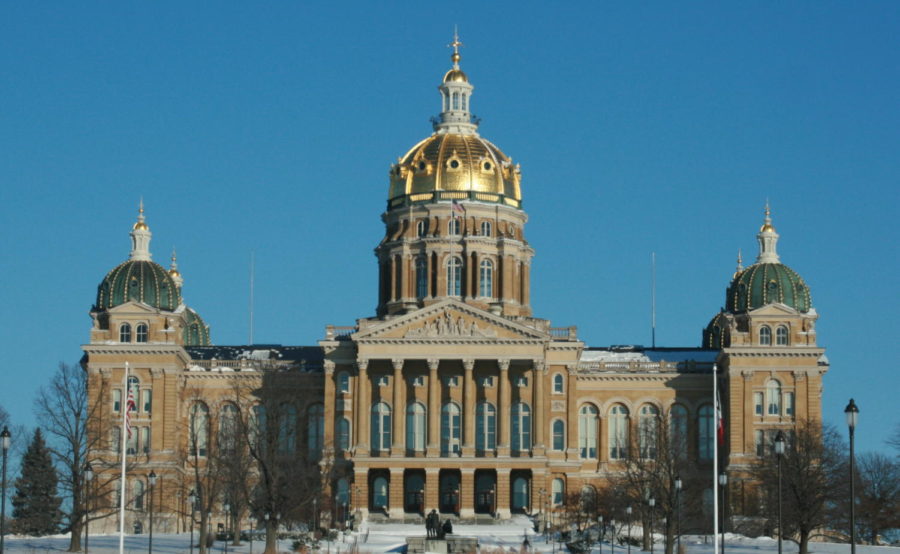Abortion laws in Iowa subject to change with upcoming election
Iowa’s state capitol in Des Moines, Iowa
Iowa’s ban on abortions after 20 weeks of pregnancy remains intact while Gov. Kim Reynolds pursues further restrictions in the courts.
Reynolds plans to urge the Iowa Courts to hear her case regarding the creation of a fetal heartbeat law in Iowa, which would ban abortions after six weeks when a fetal hearbeat can be detected, according to a June 28 press release by her press team.
Reynolds will also urge the Supreme Court to reconsider Planned Parenthood vs. Reynolds, which challenged Planned Parenthood’s ability to receive education grants to inform Iowa youth on topics such as teenage pregnancy and sexually transmitted infections.
Karen Kedrowski, the director of the Carrie Chapman Catt Center, said abortion legislation could go either way with the impending election.
“[The] state legislature is likely to take up legislation that would move back the date by which one could legally secure an abortion,” Kedrowski said. “It is possible they could make abortion illegal altogether.”
Unlike other states, such as Texas and South Dakota, Iowa did not have trigger laws in place after the overturning of Roe v. Wade. Trigger laws are legislation that goes into effect after a specific event.
Story County Rep. Beth Wessel-Kroeschell explained how the General Assembly of the legislature may handle trigger laws in Iowa during their upcoming session.
“They are going to have a hearing on this issue on Oct. 28, and if they choose not to take it up, I believe we will see trigger laws being proposed in January,” Wessel-Kroeschell said.
She explained that the likelihood of trigger laws in Iowa depends on whether the legislature is primarily Democratic or Republican after the election in November. Wessel-Kroeschell proposed that families living in poverty are most likely to be negatively impacted by trigger laws.
“Low-wage earners [are more impacted] because it does have an economic impact on your life to add a child to your family, and raising a child in poverty lowers that child’s risk of success,” Wessel-Kroeschell said.
To prepare for the upcoming election, Kedrowski suggests that students visit the Catt Center website. They have a voting FAQs page and links to election offices in all 50 states for out-of-state students.
Furthermore, Kedrowski said college students have the choice to vote in Iowa or their home state, but if they recently left Ames after graduation, they must change their voter registration.
“Any student who has strong opinions on the abortion issue should do two things,” Wessel-Kroeschell said. “Number one is they should vote in the upcoming election […] Secondly, before the state legislative session comes up, contact those elected officials and let them know what you think they ought to be doing.”
Wessel-Kroeschell suggested that voters attend a forum for the candidates running for the legislature at 8:45 a.m. Sunday at The Collegiate Methodist Church.
Your donation will support the student journalists of the Iowa State Daily. Your contribution will allow us to purchase equipment, send our student journalists to conferences and off-set their cost of living so they can continue to do best-in-the-nation work at the Iowa State Daily.












